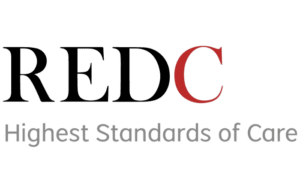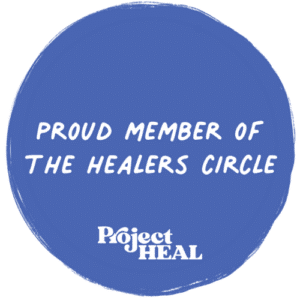Anorexia is one of the most common eating disorders that can have life-threatening consequences for people suffering from it. Contrary to other mental health disorders, anorexia (and eating disorders in general) lead to various other medical complications around the body. One of these conditions is low blood pressure—also known as hypotension.
A low blood pressure reading can differ for each individual, but conditions that occur due to anorexia are almost always serious medical situations to address. Let’s look at the relationship between anorexia and hypotension and what makes it imperative that you take these cases seriously and find the right treatment.
What Is Hypotension?
Hypotension is fairly easily defined as a condition in which your blood pressure is lower than the normal rate. It can either result from another underlying condition affecting the body or occur independently. For most people, low blood pressure is considered to be anything lower than 90/60. It’s important to remember that a rapid drop in blood pressure can still be dangerous, even if it is still in a healthy range. In many cases, you won’t experience a ton of symptoms, but if you do, it’s imperative that you receive appropriate medical treatment.
The Different Types of Hypotension
There are a few different forms of hypotension that can affect the body. These types include:
- Orthostatic Hypotension – This is a common form of hypotension in older individuals. It is the feeling you get when standing up rapidly after being seated or lying down for an extended period.
- Postprandial Hypotension – About 1 to 2 hours after eating a meal, individuals may experience this form of low blood pressure, and is also most commonly found in older adults.
- Neurally Mediated Hypotension – This type usually affects children and adolescents and can sometimes be due to a miscommunication between the heart and brain. It usually occurs after standing for long periods.
- Multiple System Atrophy – Also known as Shy-Drager syndrome, this disorder is very rare but has major impacts on the nervous system. This can cause low blood pressure, lowered heart rate, and difficulty breathing.
How Eating Disorders Like Anorexia Can Affect the Heart
About ⅓ of the deaths of patients with anorexia nervosa result from cardiac complications.[1] Doctors and medical professionals worldwide are constantly thinking of the impacts of eating disorders on the heart, and anorexia is a large part of that equation. At anything lower than the ideal body weight, anorexia can cause irregular heartbeats or arrhythmia. The most common form of this is bradycardia, in which the body sits at an abnormally low rate of about 60 beats per minute.
Most medical professionals believe that the combination of these two conditions is the body letting you know that it needs help. After all, the heart is a muscle, and muscles need fuel. When this doesn’t occur, the heart will weaken in mass and conserve energy. For individuals with anorexia, not getting enough nutrition deprives the heart of the nutrients it needs to survive, leading to abnormal blood pressure and heart rate readings.
Fortunately, nutritional rehabilitation can restore the heart to normal rates. With help from Aster Springs, individuals can receive high-quality levels of care for eating disorders that help them in their journey to restore their mind and their body’s functions.
How to Determine if Hypotension Is the Root of My Troubles?
As we discussed, low blood pressure doesn’t always show immediate signs of problems. But when those symptoms occur, you need to be proactive in getting the right treatment. Some of the more common signs include:
- Blurred vision
- Fainting
- Trouble concentrating
- Nausea
In severe situations, extremely low blood pressure levels can lead to a condition known as shock. Big drops in blood pressure cause shock and can result in uncontrolled bleeding, allergic reactions, and other life-threatening conditions. Some of the signs of shock are:
- Cold skin
- Decrease in skin color
- Rapid and shallow breathing
- Weak pulse
Treat Eating Disorders Before They Cause Other Problems
How can you prevent hypotension? Step one starts with having a positive relationship with food. Anorexia can cause many more problems that aren’t just confined to your heart health, but no one should want to mess with any of their body parts, especially not one as important as the heart. At Aster Springs, we know how to treat anorexia nervosa and can prevent hypotension and other common issues that stem from depriving oneself of food. Find the location nearest you to get you or a loved one the help needed today.
Sources:
https://www.mayoclinic.org/diseases-conditions/low-blood-pressure/symptoms-causes/syc-20355465
https://www.acute.org/resource/bradycardia-anorexia
https://thefeedblog.com/2017/02/13/a-matter-of-the-heart-eating-disorders-and-heart-health/
[1] https://thefeedblog.com/2017/02/13/a-matter-of-the-heart-eating-disorders-and-heart-health/





